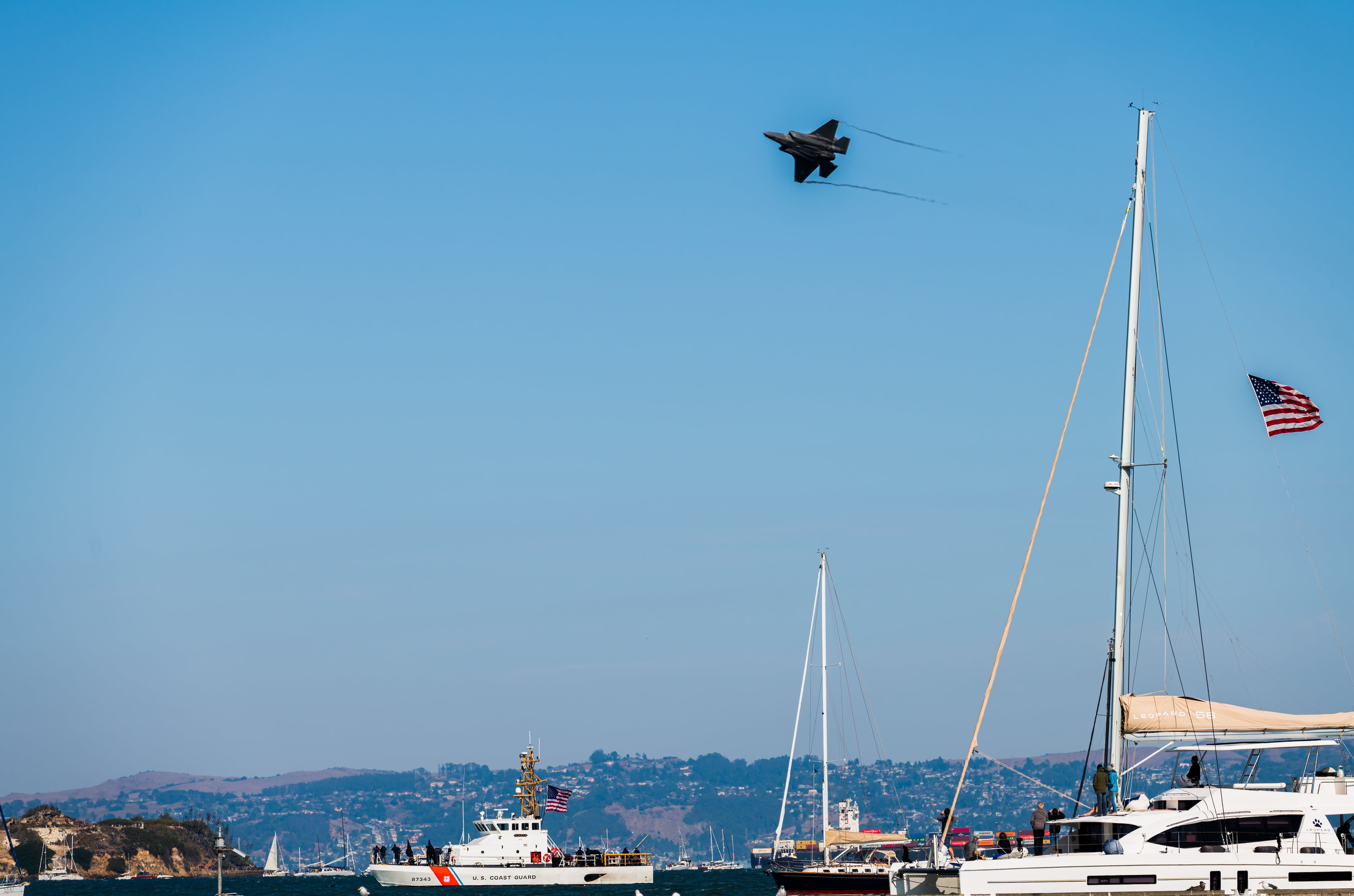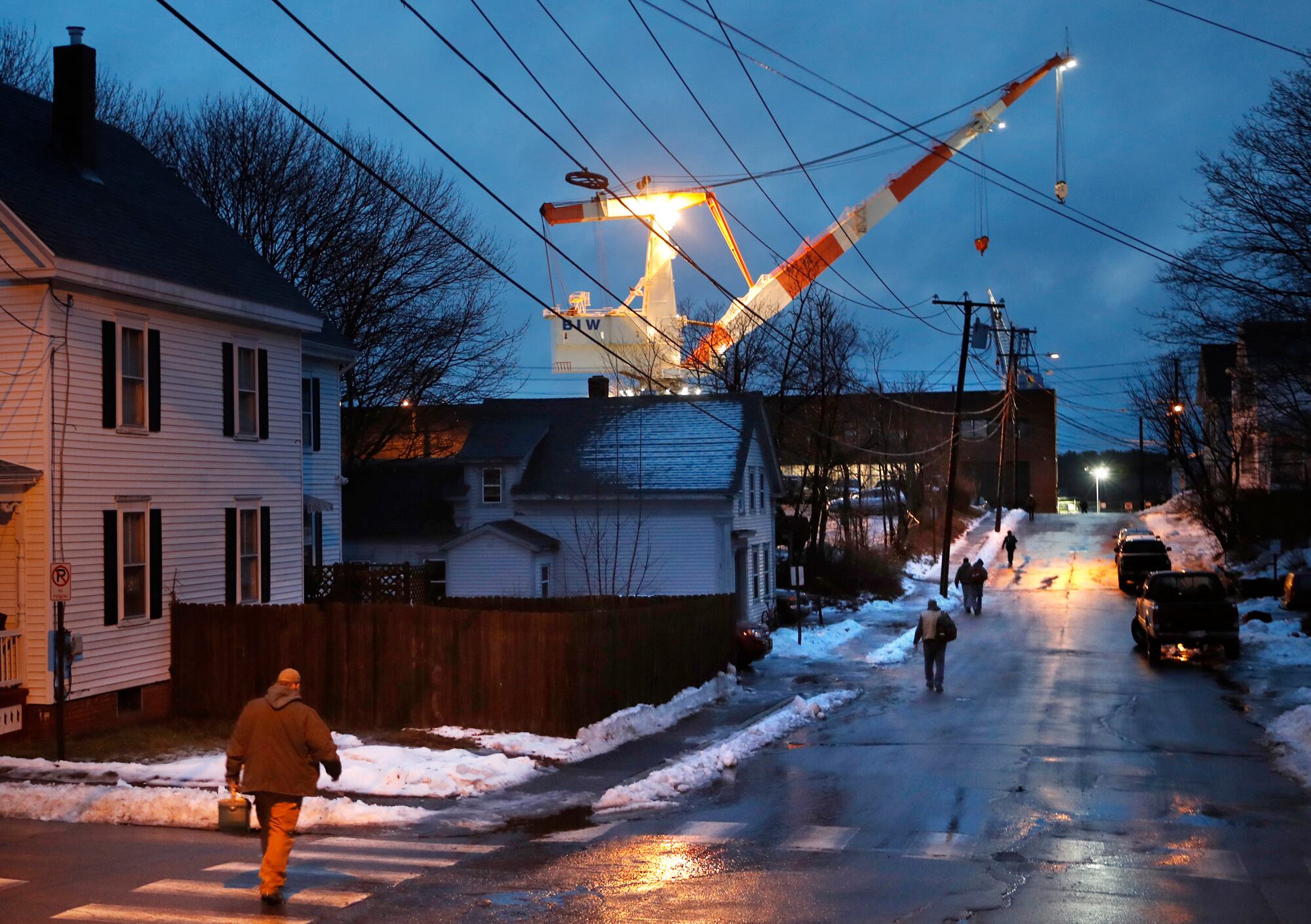WASHINGTON — The coronavirus pandemic has rattled Lockheed Martin’s aeronautics business, with the F-35 joint strike fighter program facing the prospect of a slowdown in deliveries, company executives said Tuesday.
“The disruptions introduced by the virus have caused us to reduce our 2020 sales expectations as production and supply chain activities have recently slowed in our aeronautics business area,” Lockheed CEO Marillyn Hewson said during an April 21 earnings call with investors.
The company now projects its total sales for 2020 will amount to anywhere from $62.25 billion to $64 billion dollars — down from the the $62.75 billion to $64.25 billion it had previously estimated in January.
RELATED

Production of the F-35 has been the hardest hit by the COVID-19 pandemic so far, said Ken Possenriede, the company’s chief financial officer.
“There’s more analysis that we’re going to do over the next couple of weeks working with our supply chain, our Fort Worth production line to determine — if any impact — to what extent it will be, including deliveries,” he said.
Lockheed’s acknowledgement of COVID-19 related challenges comes a day after the Pentagon disclosed schedule delays across its major weapons acquisition efforts, with aviation programs hit particularly hard by the effects of the pandemic.
“We believe there will be a three-month impact that we can see right now. So we’re looking at schedule delays and inefficiencies and so forth. That isn’t a particular program, that’s [major defense acquisition programs] in general,” Ellen Lord, the Pentagon’s top acquisition official, told reporters Monday.
RELATED

While Lord did not name specific programs that could be delayed, Possenriede said Tuesday that disruptions to the F-35 program were likely due to pressures faced by domestic and international companies within the jet’s global supply chain.
“There are local distancing requirements that are being more stringently applied across the globe. There is workforce disruption,” he said. “We’ve actually had some issues with shipping constraints.”
Most recently, Lockheed’s supply chain team discovered an issue with suppliers’ performance-based payment invoices, which get delivered to Lockheed after certain milestones are completed, Possenriede said.
“There are a couple suppliers that are going to be delinquent in April. Some of them are for administrative reasons — we’ll work through that. That’s just timing. Some of them is due to them not achieving their milestones,” he said. “Most of it is going to be COVID-related. We’re looking at that.”
Despite the challenges in keeping F-35 production smooth, there has been little change to other aspects of the program, Possenriede said. Development and follow-on modernization activities have continued with “little to no impact.”
And while Lockheed contractors have faced some barriers reporting to work at certain bases where they help perform repairs or stand up maintenance operations, Possenriede said there has been minimal impact to F-35 sustainment.
Valerie Insinna is Defense News' air warfare reporter. She previously worked the Navy/congressional beats for Defense Daily, which followed almost three years as a staff writer for National Defense Magazine. Prior to that, she worked as an editorial assistant for the Tokyo Shimbun’s Washington bureau.







